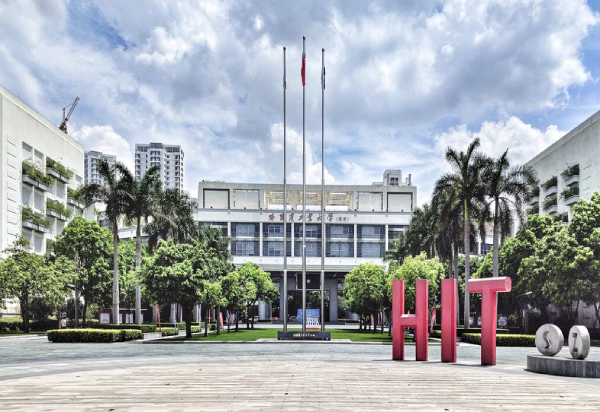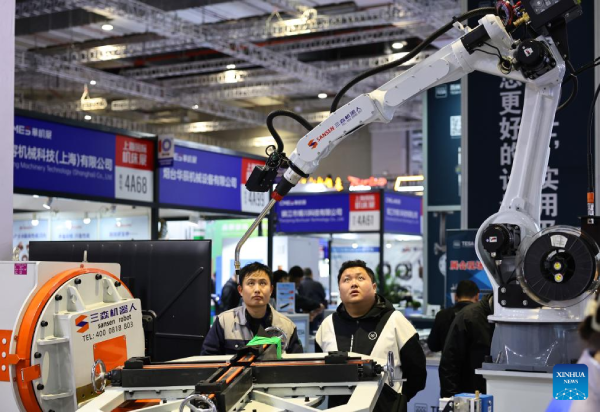China’s meteoric economic rise has turned it into a land of opportunity for professionals worldwide. In recent years, more Arab graduates and young professionals are looking towards China – the world’s second-largest economy – to kickstart or advance their careers. For ambitious individuals from the Middle East and North Africa, working in China offers a chance to gain cutting-edge experience, be at the forefront of innovation, and serve as a cultural and business bridge between China and the Arab world. At the same time, entering China’s job market comes with its own set of challenges: navigating work visas, adapting to corporate culture, and overcoming language barriers. This guide provides a comprehensive look at what Arab professionals can expect and how to thrive in China’s dynamic work environment, from available job opportunities to practical tips for settling in.
Job Opportunities for Foreigners in China: Despite the competitive nature of China’s job market – fueled by millions of skilled domestic graduates each year – there are specific sectors where foreign talent is in demand. These demands arise either due to a shortage of certain skills locally or the unique perspective internationals bring. Some of the most popular and viable job opportunities for foreigners (including Arabs) in China are:
Education – Teaching English (and Other Languages): One of the most common careers for foreigners in China is as an English teacher. Chinese schools, from kindergartens to universities, as well as private language institutes, have an insatiable appetite for English (and other foreign language) instruction. The emphasis on English learning in China means native or fluent English speakers are often sought after. Many Arab professionals with strong English skills have successfully taken up teaching roles. These jobs typically require at least a bachelor’s degree and a TEFL/TESOL certification, and they often come with perks like free housing, flight reimbursements, and health insurance. International schools even pay premiums and may not strictly require Mandarin ability. Beyond English, there is a slowly growing interest in learning Arabic in China (given increasing China-MENA ties), opening opportunities for Arabs to teach Arabic at universities or cultural centers – though these positions are fewer and usually in higher education.
Technology and IT: China’s tech industry is booming, with innovation hubs in Shenzhen, Beijing, and Hangzhou. Giants like Huawei, Alibaba, Tencent, and countless startups are pushing the frontiers of AI, fintech, e-commerce, etc. There is a need for foreign software engineers, data scientists, AI specialists, and IT experts who can contribute specialized knowledge. Foreign IT professionals are often welcomed for their global experience or niche expertise in areas like cybersecurity or game development. These roles offer competitive salaries and the excitement of working on cutting-edge projects. While some tech positions might require little to no Chinese (especially in companies with international teams), being bilingual is definitely an asset. Many Arab tech professionals in China find themselves working in multicultural teams on projects that have worldwide reach.
Marketing, Media & Content Creation: As Chinese companies expand globally, there is rising demand for marketing and communications professionals who understand international markets. Foreigners (including Arabs) are hired in roles like brand managers, digital marketers, content creators, or public relations specialists, particularly to target the Middle East, North Africa, or other regions. For example, a Chinese firm looking to enter the GCC market might hire an Arab marketing specialist to tailor campaigns to that audience. These roles leverage the foreign professional’s cultural insights and language skills to craft messages that resonate overseas. The work might involve creating bilingual content (English-Arabic), managing social media for global audiences, or advising on international advertising strategies. Major cities like Shanghai and Beijing host a number of PR and advertising agencies with international clients, where foreign hires are quite common.
Engineering and Specialized Technical Fields: Even though China produces a vast number of engineers annually, there’s still demand for foreign experts in certain engineering disciplines. Fields like aerospace, automotive engineering, environmental engineering, and architecture value foreign expertise for innovative approaches and adherence to international standards. Foreign engineers in China may work on mega infrastructure projects (bridges, high-speed rail, smart cities) or in R&D for technology and manufacturing companies. Often, they bring valuable experience that helps train local teams and introduce new practices. For instance, an Arab civil engineer might work with a Chinese construction firm on overseas projects in the Middle East, or a Western-trained architect could be recruited by a Chinese design institute to blend international styles into domestic projects. Being an engineer in China as a foreigner can mean playing a key role in knowledge transfer and innovation.
Hospitality and Tourism: China’s tourism and hospitality sector has grown tremendously, with many new luxury hotels, resorts, and an influx of both international tourists and Chinese traveling domestically. This has opened roles for foreigners in hotel management, culinary arts, and tourism services. In international hotel chains across China, it’s not unusual to find foreign (including Arab) managers and guest relations officers, especially in locations popular with Middle Eastern tourists or in five-star hotels aiming for a cosmopolitan image. These professionals ensure service standards meet international expectations and often cater to foreign guests’ needs (for example, understanding halal food requirements or Arabic language services). Additionally, travel agencies and tour companies sometimes hire foreigners as tour guides or business development managers to better connect with overseas markets. An Arab professional with background in hospitality might head the Middle East market segment for a Chinese airline or tourism board.
International Business and Trade: Given the expanding trade between China and Arab countries under initiatives like the Belt and Road, there’s high demand for talent that can manage cross-border business operations. Arab professionals find opportunities in roles like international sales managers, import-export specialists, and regional market advisors. These jobs might be in Chinese manufacturing firms that export to the Middle East, where having an Arab professional helps bridge language and business culture gaps. Cities like Shanghai and Guangzhou – major trade and finance centers – have companies and even government-related trade promotion councils that recruit foreigners to strengthen ties with specific regions. An Arab in such a role could oversee client relationships in the GCC, negotiate deals, or coordinate marketing strategies for the Arab world. Language skills are crucial here: knowing Arabic, English, and some Chinese is a golden combination that not many possess, thus Arabs can fill that niche effectively.
Management Consulting and Finance: As Chinese companies globalize and modernize management practices, there’s a niche for foreign management consultants and finance professionals. International firms like the Big Four consultancies (Deloitte, PwC, etc.) and investment banks operate in China and often hire foreign analysts and consultants. They value the diverse perspective and often have multinational teams for projects, meaning an Arab consultant could work on strategy for a Chinese company expanding to MENA, or a risk analyst might assess Middle East markets for a Chinese investor. These positions usually require significant qualifications and experience, but they are high-paying and prestigious.
Translation and Interpretation: With increasing diplomatic, academic, and business exchanges between China and Arab countries, the need for skilled translators and interpreters (Arabic-Chinese-English) has grown. Some Arabs who achieve strong Chinese proficiency work as interpreters for events, embassies, or companies. This can be freelance or full-time. Likewise, translation of documents and media (like news, books, legal papers) from Chinese to Arabic and vice versa is a specialized niche where native Arabic speakers are indispensable. While these roles might not be large in number, they play a critical part in facilitating communication in high-level meetings and conferences.
Healthcare and Other Fields: China’s healthcare sector is modernizing, and certain foreign healthcare professionals (doctors, medical researchers) are hired especially in international hospitals or specialized clinics in big cities. For instance, a foreign doctor might practice in a VIP medical facility serving expats, or an Arab medical researcher might join a Chinese pharma company’s R&D team working on traditional Chinese medicine integration with Middle Eastern markets. Additionally, foreign talent in creative industries (design, gaming, entertainment) is also trickling in as China’s cultural industries look outward. There are foreign musicians, artists, and creative directors (some from the Arab world too) collaborating in China’s vibrant arts scene
Work Visa (Z Visa) Procedures and Requirements: To legally work in China, securing the proper visa and permits is absolutely essential. The main pathway is via the Z Visa, which is the entry visa for employment, but obtaining it involves multiple steps and coordination with your employer. Here’s a breakdown:
Job Offer and Work Permit Notice: First, you must have a job offer from a China-based employer. With a signed employment contract or invitation, the employer in China acts as your sponsor to apply for a Foreign Work Permit Notice from the Chinese authorities. This process is done through the employer (often online through the SAFEA – State Administration of Foreign Experts Affairs – system). To get approval, you must meet certain criteria: typically a bachelor’s degree or higher, plus at least two years of relevant work experience is required for most jobs (this rule can be waived for some high-level talents or certain fields). Your employer will submit documents like your resume, degree certificates (authenticated), a health check report, and sometimes a criminal background check. China categorizes foreign workers into A (high-level experts), B (professionals in needed fields), and C (entry-level or temporary workers), but most fall into B. Once approved, you (via your employer) will receive a Work Permit Notice (often electronically).
Z Visa Application at a Chinese Embassy: Armed with the Work Permit Notice and an official invitation letter (some regions issue a PU letter as an invitation, though this has been more common during pandemic controls), you apply for a Z visa at the Chinese embassy/consulate in your home country or current country of residence. Documents you typically need: your passport (with at least 6 months validity), a completed visa application form with passport-sized photo, the original or copy of the Work Permit Notice from China, and the invitation letter (if applicable). Some embassies also request a medical form and a police clearance certificate. The Z visa, when issued, is usually a single-entry visa valid for 30 days from the date of entry (meaning you must travel to China relatively soon after issuance and then complete procedures there).
Arrival and Residence Permit: After arriving in China on the Z visa, the process continues on the ground. You will need to undergo a medical examination at an authorized health center (even if you did one for the application, China might require their own). Then, together with your employer’s HR, you apply for a Work Permit Card (the actual work permit) if not already granted, and a Residence Permit for the duration of your contract. The residence permit is essentially the long-term visa; it’s a sticker in your passport that replaces the 30-day visa and allows multiple entries. Initial work residence permits are often valid for 1 year (aligned with your contract, but can be up to 5 years for high-level category A talents). This residence permit must be renewed if you continue employment beyond its expiry. It’s crucial to complete this step within 30 days of entry to stay in status.
It’s worth noting that Chinese regulations have been refined over time, and the process might slightly vary by city or province. Some cities, for example, have a points system for work permits. But generally, having the right qualifications and a willing employer is key – the company’s eligibility (they often need a license to hire foreigners) and your credentials determine success. There are also special cases: R Visas for “high-level talents” are visas for experts whose skills are urgently needed (these are less common, targeted at top scientists, researchers, etc.). R visa holders get preferential treatment (longer stays, multiple entries). For short business trips, an M Visa is used, but that doesn’t grant the right to work as an employee – it’s for business meetings, etc.. Also, internships or volunteering do not typically fall under Z visas; sometimes students (X visa holders) can intern with permission from their universities and authorities.
In summary, to work in China as an Arab professional, you must go through a legal process: job offer → work permit → Z visa → residence permit. It may sound bureaucratic, but many companies (especially those experienced with foreign hires) will guide you or even handle much of the paperwork. It’s important to remain patient and ensure all documents (diplomas, etc.) are properly notarized and authenticated as needed. Once you have your residence permit in hand, you can fully focus on your new job without worries about your visa status.

Salaries, Working Hours, and Work Culture: Salaries for foreign professionals in China vary widely across industries and cities. On the whole, pay in China has been rising and often can be quite lucrative, especially for specialized skills. According to reports, the average monthly salary for foreign workers in 2024 was around 25,000 CNY (roughly $3,500), up from about 20,000 CNY a decade earlier – reflecting the demand for skilled foreign talent. Of course, this average spans from entry-level jobs to senior executives. Let’s break it down by sectors: In education, an ESL teacher at a training center or school might earn 10,000–20,000 CNY per month, while international schools could pay on the higher end or more (with housing often provided on top). In the tech industry, foreign IT specialists or engineers typically earn 20,000–40,000 CNY monthly, but senior roles in big tech firms or niche expertise can command higher, sometimes with equity or bonuses. Finance and banking roles in Shanghai or Shenzhen could range widely – mid-level positions might be 30,000–50,000 CNY, whereas top managers or expat executives at multinational banks could make well over 100,000 CNY a month. Medical professionals working for expat-focused hospitals may get anywhere from 30,000 to 80,000 CNY, depending on their specialization and experience. It’s important to factor in the cost of living: a 20k salary in a smaller city goes much further than in Beijing or Shanghai. Many foreign workers find that while salaries might be lower than Western countries for similar roles, the relatively lower living costs in China (outside a few expensive cities) and provided benefits even things out. Moreover, China’s tax system offers certain benefits to expatriates (like deductions for housing, language training, etc., though these have been getting phased out gradually).
Moving to working hours and overtime: By law, the standard workweek in China is 40 hours (8 hours a day, 5 days a week). The labor law also stipulates that any overtime must be compensated at 1.5 times the normal rate for weekdays, 2 times for weekend work, and 3 times for public holiday work. There is also an upper limit on overtime (generally not more than 36 hours a month). Enforcement of these rules has become stricter after high-profile incidents – in 2021, China’s Supreme Court explicitly ruled the infamous “996” schedule (9 am to 9 pm, 6 days a week) as illegal. Since then, many tech companies have publicly moved away from excessive overtime culture. That said, actual work hours can depend on the industry and company. Foreigners working in joint ventures or multinationals will often have work hours similar to their home country norms (somewhere between 8:30 am – 6 pm, for example). In contrast, startups or local private companies might have a culture of staying late when deadlines loom – although you should still receive overtime pay or time off in lieu. It’s wise to clarify expectations during your job interview. Many foreign professionals are pleasantly surprised to find their Chinese colleagues very dedicated; you might see them working long hours voluntarily to finish projects. But as a foreigner, especially if unfamiliar with such a rhythm, it’s okay to communicate and find a balance – increasingly, Chinese firms realize that attracting foreign talent may require aligning with global work-life balance standards. On a positive note, China has ample public holidays (and a unique system of occasionally swapping workdays with weekends around holidays). You’ll get a week off for Chinese New Year (Spring Festival) and several other long weekends.
Now, regarding work culture: Chinese workplace culture can be different from the Arab work culture in certain respects, but also has many universal professional similarities. One notable aspect is the concept of hierarchy and respect for authority – Chinese organizations often have a clear chain of command, and respecting seniority (in terms of age or rank) is ingrained. For example, in meetings, a more junior person might defer to a senior’s opinion publicly even if they disagree, saving any critique for private moments. As a foreign professional, you might be given a bit of leeway or even a special status where you can straddle boundaries (some companies treat foreign talent almost like consultants, exempt from certain internal politics), but understanding the underlying expectations is important. The cultural principle of “saving face” (给面子) means that open confrontation or direct criticism, especially in group settings, is often avoided to maintain harmonyepaper.chinadaily.com.cn. Feedback might be given in a more roundabout way. As an Arab who might value directness, learning this nuance can be crucial. That said, workplaces in cosmopolitan cities are becoming more international in style, so these cultural differences are less pronounced in firms that are used to foreign employees. Another big cultural element is guanxi, meaning relationships or connections. Chinese colleagues often bond after work, whether it’s dinners, karaoke (KTV), or team-building trips. Building good guanxi with your team – showing you’re trustworthy and likable – can be as important as delivering good work. Don’t be surprised if colleagues want to know you on a personal level; topics like family or even inviting you for festival celebrations might come up once you establish rapport. Participating in these social activities, if you’re comfortable, can strengthen your relationships and integrate you into the team. Language can be a barrier here, but even a little effort to speak Chinese or appreciate Chinese cuisine goes a long way.
Another aspect: communication style. Chinese employees may not always voice disagreement in meetings; you might need to read between the lines or follow up one-on-one to get honest inputs. As a foreigner in a Chinese company, you might actually be expected to speak up more because they value your perspective – just do so tactfully. Punctuality and diligence are generally a given; being on time for work and meetings is the norm, and deadlines are taken seriously. You’ll also notice a strong culture of continuous learning – many employees pursue extra certifications or courses, often encouraged by employers. If you are in a managerial position, understanding how to motivate Chinese staff is key: often, public recognition, advancement opportunities, and creating a family-like team atmosphere are effective.
From a more logistical standpoint, day-to-day office life in China is modern: offices are equipped with fast internet (though remember the Great Firewall – your office computer might need a VPN for certain global sites), and almost all Chinese colleagues will use their smartphones for everything. Apps like WeChat are commonly used even for work communication (there might be WeChat work groups). If you’re working with government or state-owned entities, be prepared for some formalities – e.g., using official seals (chops) on documents, and somewhat more bureaucracy. In private companies, things can be very agile and fast-paced. Decision-making can sometimes be top-down (depending on the company culture), which might be different from more consensus-based approaches some foreigners are used to.
As for benefits and conditions, Chinese labor law mandates that employers provide social insurance to foreign employees too. This includes pension, medical insurance, unemployment, work injury, and maternity insurance. The contributions are partly from your salary and partly from the employer. While you as an expat might not intend to retire in China, contributing to the pension is still required; however, certain nationalities can claim a refund of their pension contributions when leaving China for good (the rules for this vary, but many expatriates successfully get this lump sum back). Annual leave is another thing: China’s statutory vacation days are not very high for new employees (5 days annual leave after one year of service, increasing with more years of work experience). Some companies, especially foreign or joint ventures, offer more than the legal minimum. Ensure your contract spells out your vacation days, health insurance (many companies give supplementary private health insurance to foreigners or managerial staff, covering international clinics), and any housing or travel allowances. Additionally, check if there are provisions for bonus (many Chinese companies give a year-end bonus, often around Chinese New Year, commonly referred to as the “13th-month salary”).
Overall, Arab professionals working in China often report that after an adjustment period, they find their groove and greatly value the experience gained. You’ll be operating in a fast-moving, future-oriented environment where things that might take months elsewhere can happen in weeks. For instance, projects get green-lit and executed very quickly. This pace can be challenging but also exhilarating – you feel like you’re contributing to big developments. You also stand to benefit from China’s role in emerging technologies; working here might put you at the forefront of developments in AI, green energy, biotech, etc. So while you should brace for some cultural differences and corporate idiosyncrasies, remember that many foreigners have built successful careers in China and even moved into top leadership positions in their companies. With adaptability, respect, and a drive to learn, an Arab professional can definitely thrive in the Chinese workplace.

Challenges and Opportunities for Arabs in China’s Job Market: Challenges certainly exist for Arabs (and other foreigners) in China, but they can be overcome with awareness and strategy. One major challenge is the language barrier. Although many educated Chinese professionals speak at least some English, not speaking Mandarin can limit your roles (for example, client-facing positions or jobs in local firms will expect Chinese proficiency). Many Arabs working in China therefore take intensive Chinese lessons, especially in the first year, which is highly recommended. Achieving even an intermediate level of Chinese (HSK 4 or so) can significantly widen the opportunities and also earn respect from employersepaper.chinadaily.com.cn. Another challenge: visa bureaucracy and policy changes. Chinese immigration rules have tightened somewhat compared to years past, as they now carefully evaluate foreign hires for necessity and qualifications. You need to ensure all your documents are in order and keep an eye on policy updates (for instance, rules regarding age limits or acceptable universities for foreign degrees can affect work permit approval). It’s wise to have a contingency (like pursuing further studies in China or elsewhere) if a policy shift makes the job hunt tougher at any point. There’s also the cultural adjustment – Chinese business culture might involve indirect communication, heavy emphasis on long-term relationship building, and sometimes what might feel like bureaucratic procedures (chops, red tape) that require patience. As an Arab, you might initially find it challenging to decipher what’s unsaid or to navigate the notion of “face”. But these are learnable with time and by observing local colleagues or having a cultural mentor. Some Arabs in China have mentioned feeling a bit isolated at first due to being far from home and in a society with relatively few Arabs (though this is changing). Homesickness or finding Halal food, for instance, can be a challenge especially outside big cities. However, Chinese society is quite accommodating once you communicate your needs; in many cities you can find at least one mosque or halal shop, and colleagues often go out of their way to help a foreign friend find what they need.
There might also be instances of misconceptions or biases – while Chinese people are generally very welcoming to foreigners, they may not know much about Arab culture beyond news or stereotypes. You might occasionally need to gently educate coworkers about your region or correct misconceptions (for example, clarifying the diversity of Arab cultures or explaining any religious practices like needing a space to pray or fasting during Ramadan). Most Chinese are curious and open to learning about these things when you share. On the flip side, being Arab can also spark a lot of positive curiosity – many Chinese, especially youth, have growing interest in Arabic language, Middle Eastern food, and tourism in places like Dubai or Egypt. This can actually help you socially and professionally, as people might remember you distinctively and want to engage.
Now, looking at the opportunities, these arguably outweigh the challenges. One huge opportunity is being part of the China growth story. Whether you work in tech, infrastructure, education or any field, you’re contributing in a market that often leads global trends. The experience you gain is quite cutting-edge. If one day you return to the Middle East, having worked in China is a strong asset on your CV – Middle Eastern companies and even governments value talent with China experience given China’s pivotal role in global business. Another opportunity is entrepreneurship. After understanding the lay of the land, some Arabs venture into starting their own businesses in China or related to China-Arab trade. We have real-world examples: the city of Yiwu in Zhejiang province has a community of thousands of Arab traders. Many of them arrived as students or small traders and ended up creating companies facilitating exports of Chinese goods to the MENA region. Some Arabs have opened popular restaurants, import/export firms, or become logistics providers leveraging bilingual skills and bicultural know-how. The story of Mohannad Shalabi, a Jordanian in Yiwu, is inspirational – he went from a restaurant worker to owning a restaurant and a trading company, and was even praised by President Xi Jinping as a model of Arab-Chinese cooperation. His journey, starting from nothing to being recognized nationally, underscores that foreigners can succeed spectacularly in China. For Arab professionals, especially those with an entrepreneurial spark, China offers an environment to test ideas at scale – be it sourcing products, developing an app (some Middle Eastern entrepreneurs have collaborated with Chinese tech teams to build applications for Arab markets), or consulting for the many Chinese companies expanding abroad.
Moreover, there’s a unique opportunity for Arabs to be cultural ambassadors. As China engages more with Arab countries (investments, infrastructure projects, cultural exchanges), there’s demand for people who understand both sides. An Arab professional in China can often find themselves acting as the go-between, whether officially in a business development role or informally in their team. This position can be leveraged to build a niche career. For instance, you might become an expert in China-Middle East trade policies, or in tailoring Chinese products to Arabic-speaking consumers. Fields like translation, journalism, or academia also present opportunities: some Arabs in China have become journalists/reporters for Arabic media, providing on-ground insights from China. Others have pursued PhDs in China studies and become academics bridging understanding between regions. And in the diplomatic realm, experience in China is invaluable – you could later work for international organizations or home-country ministries dealing with China.
In terms of lifestyle opportunities, living in China is an adventure. You’ll witness a society in rapid transition, enjoy a rich cultural life (from learning martial arts to Chinese calligraphy if you wish), and travel within this vast country – from the snowy Harbin to tropical Hainan. You’ll meet not only Chinese but people from all over the world in China’s big cities (the expat communities are diverse). Many Arabs form lifelong friendships and professional networks during their stint in China. Importantly, salaries you earn in China, combined with relatively low taxes and possibly employer-covered housing, can allow you to save money or achieve financial goals. The Chinese currency (RMB) has been stable and strong, and transferring money abroad (within legal limits) is feasible, so supporting family back home or investing is doable.
Success stories of Arabs in China abound and can motivate newcomers. Beyond Mohannad’s example in Yiwu, we have young Arab entrepreneurs launching startups in Shenzhen’s tech ecosystem, Arab executives leading Chinese companies’ Middle East branches after years of experience in China, and numerous cases of individuals who started as language students and grew into prominent roles. For example, one might hear of an Egyptian who studied in Wuhan and now manages a big construction project for a Chinese SOE in Egypt, or a Syrian who opened a chain of Middle Eastern restaurants across China. The possibilities are endless – each person can carve their own path.
Practical Tips for Settling and Working: To cap things off, here are some pragmatic tips for Arab professionals embarking on a career in China:
Invest in Language and Cultural Training: Before and after you arrive, learn Mandarin. Even a basic level will dramatically improve daily life and integration. Simultaneously, read about Chinese workplace etiquette and social norms – knowing why colleagues exchange business cards with two hands or why they might be shy to say “no” directly helps you navigate situations more deftly.
Leverage Community Networks: Connect with existing Arab or Muslim communities. Most big cities have WeChat groups for Arabs or at least for expats where you can ask for advice (e.g., “Where can I find couscous in Shanghai?” or “Anyone experienced in extending a work permit?”). Platforms like Internations or Meetup, as well as Facebook groups (if you use VPN), might have city-specific groups (e.g., “Arabs in Beijing”). These networks can provide everything from moral support to job leads.
Maintain an Open Mind and Be Adaptable: China is a place where things might not always go as planned, but they often work out in the end. Maybe your meeting gets rescheduled last minute because your Chinese colleagues have to handle something urgent – flexibility is key. Patience and a sense of humor help too when facing bureaucratic quirks or misunderstandings. Show genuine curiosity about China. Your Chinese coworkers will appreciate if you, say, try the mooncake they bring you during Mid-Autumn Festival, or ask questions about Chinese New Year traditions. Engaging with their culture encourages them to learn about yours – maybe you can share dates and explain Ramadan, fostering a reciprocal understanding.
Professionalism and Learning Attitude: Arrive on time, meet deadlines, and demonstrate the strong work ethic Arabs are known for. At the same time, don’t hesitate to ask questions if you’re unsure about a task. Chinese colleagues might initially be too polite to point out if you’re doing something not quite right; proactively seeking feedback shows humility and willingness to improve. Moreover, consider finding a mentor figure – perhaps a senior colleague (Chinese or foreign) who can guide you through corporate structures and advance your career.
Plan for the Long Term but Be Prepared for Change: Maybe you intend to stay in China for just 2-3 years, or perhaps it could turn into a decade-long stint. Either way, keep an eye on how your China experience can serve your future. Learn as much as possible – whether it’s Chinese business practices, a new technical skill, or an understanding of Chinese consumers – these are things you can carry forward. On the practical side, maintain an updated CV in English (and maybe Chinese) highlighting your China achievements, and build a LinkedIn presence (many in the international business community in China use LinkedIn to connect). At the same time, policies or personal goals can change, so save some money, keep contacts back home warm, and maintain flexibility to pivot if needed.
Health and Well-being: Air quality in some cities (like Beijing) can be an issue, so taking precautions (using air purifiers, wearing masks on bad pollution days) is wise. Food is generally safe, but it’s easy to indulge in all the eating out – maintain a balanced diet. If you’re Muslim and concerned about halal food, larger cities have halal restaurants (清真) and even supermarkets with imported goods. In smaller cities, you might rely on cooking at home more – fortunately, one can get groceries delivered to their door with apps easily.
Respect and Relationships: Treat everyone with respect, from your doorman to the CEO. In Chinese culture, building good will with people at all levels matters. Small gestures, like greeting the office ayi (cleaning lady) with a smile and “ni hao,” or joining colleagues for the occasional lunch (even if you have dietary restrictions, you can usually find something suitable), go a long way to integrate you. When you eventually leave a job or China, do so on good terms; the world is round and you may encounter these connections again in unexpected ways.
Working in China can be one of the most rewarding chapters of an Arab professional’s life. It will challenge you, broaden your horizons, and equip you with unique skills. You’ll likely become more resilient, adaptable, and globally minded. As China and the Arab world draw closer in business and cultural ties, those individuals who understand both sides will be highly valued. By seizing the opportunities, mitigating the challenges, and approaching the experience with an eagerness to learn and respect for your hosts, you set yourself up not only for career success in China, but for becoming a true global professional. In the words of a popular Chinese proverb, “机遇只偏爱有准备的头脑” – “Opportunity favors the prepared mind.” Prepare yourself, and China could be the gateway to achievements beyond your expectations.








